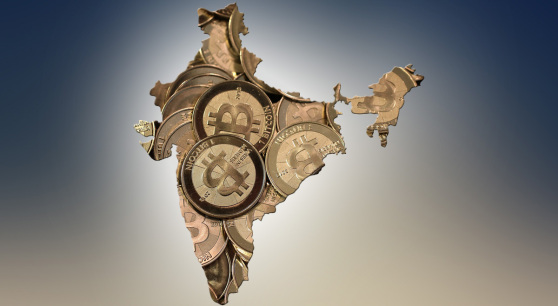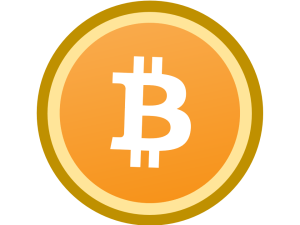Interest in digital currencies like Bitcoin has been increasing. But the chances of its proliferation in trade remains a question, particularly in India, which has a highly regulated banking environment. Here’s why Bitcoin cannot be ignored
In the early years of e-commerce, Indian consumers were wary of using their credit cards for online transactions. But with tighter regulations and security controls, consumer confidence improved, and online card transactions have increased. It was the same for Internet banking. Are we about to see history repeating itself with digital currencies such as Bitcoin?
It is estimated that there are 30,000 Bitcoins in India, with some 50 commercial establishments accepting payment in Bitcoins. These include shops, restaurants, bars, salons and other establishments. But it seems to be a stopgap arrangement, overshadowed by the fact that the Indian authorities could suddenly pull the shutters on digital currencies. In fact, Bitcoin operators and exchanges had to suspend operations recently (See ‘Bitcoin in India’). Yet we observe that Bitcoin payment for online services such as Web Hosting is picking up. Globally, the number of transactions in Bitcoin per day has increased from 35,000 transactions in September 2012 to 55,000 per day in September 2013.
While Bitcoin is gradually gaining acceptance, it poses many questions: like the legitimacy of Bitcoin in the real world, as a currency for commercial transactions; about its potential for online transactions and for e-commerce; and about the risks and dangers posed due to misuse in the deep, dark web of drug trade, money laundering, counterfeit documents, and other shady activities.
And Bitcoin isn’t the only digital currency — it is estimated that there are about 50 such currencies worldwide, with unimaginative names like Litecoin, Ripple, Particlecoin, Peercoin, Namecoin, Lifecoin etc. In fact, we stumbled upon a desi version called LaxmiCoin, which is about to launch its mining operations (Laxmi is regarded as the Goddess of Wealth).
Bitcoin in India
In India, Bitcoin is in a state of anarchy, with no clear standing on whether Bitcoins (or other digital currencies) are legal or illegal. The Reserve Bank of India (RBI) recently issued a cautionary notice warning consumers about the potential financial, operational, legal, customer protection and security related risks of buying and trading in digital currencies. The Times of India reported that the Enforcement Directorate and Income Tax department took action against Bitcoin operators, causing others to suspend or close operations. Some operators have resumed operations, in the hope that lobbying by organized groups will legitimize trading in Bitcoin.
But Bitcoin cannot be ignored. Ever since its launch in 2009, its value soared to unprecedented levels. As of Jan 15, 2014 you’d need Rs 59,321 to buy a single Bitcoin. That value wildly fluctuates making Bitcoin a highly volatile currency and a risky proposition for investors. Online exchanges that accept real-world currency in exchange for Bitcoins, and Bitcoin operators that facilitate trading, are mushrooming on the Internet.
Since Bitcoin and other digital currencies bypass the central bank, it raises questions about how VAT and fees will be imposed during transactions, or how it will comply with the FEMA (Foreign Exchange Management Act) or other Acts and laws relating to Import-Export trade across borders.
While we wait for all these issues to be sorted out, there are many entrepreneurs in India who remain optimistic; investors are buying Bitcoin, perhaps like a hedge, hoping to cash in when the value soars further.
Bitcoins Alliance of India
Meanwhile, a community of entrepreneurs in Bengaluru that call themselves the Bitcoins Alliance of India (BAI), had meet-ups to organize themselves, and to decide how they want to lobby for the acceptance and use of Bitcoin in the country. They want the government to recognize and legalize trading in Bitcoin. BAI appointed the services of Nishith Desai Associates, a team of international Legal and Tax Counsellors, to look into the legality of Bitcoins in India.
In a note on the BAI website, this firm says: “Our Bitcoins Practice Group examined the issue from techno-legal perspective and found that Bitcoins per se are not illegal in India. This is in consonance with international approach. US considers Bitcoins as a legitimate payment alternative. US Senate Home Land Security and Government Affairs Committee and the Senate Banking Committee consider that virtual currency has legitimate uses.”
InformationWeek spoke to some Bitcoin enthusiasts for this story.
“There are about 50 establishments that are accepting Bitcoins in India. But Bitcoins should be seen as a long-term investment as they have high volatility,” said Sathvik Vishwanath, founder of CoinMonk, and a founding member of Bitcoins Alliance of India.
Advocate Nishith Desai recently told a group at a BAI meeting that “ordinary people” should not be trading in Bitcoin because of its high volatility and risky nature.
Vishwanath and a group of like-minded entrepreneurs want to be recognized, and to make it easier for people or establishments to accept Bitcoins in India.
Amit Nirgunarthy, an entrepreneur and Bitcoin enthusiast who is also one of the founding members of BAI said, “Indian entrepreneurs are more cautious about investing in Bitcoins, fearing that the RBI may suddenly declare them illegal.”
However, he was all praises for the technology behind Bitcoin saying it could potentially be used for trading stocks across borders. And because it has digital signatures, it can also be used for filing documents in courts. Nirgunarthy feels it is much easier to do transactions with Bitcoins than using PayPal.
A note on the BAI website highlights the advantages of Bitcoin as:
1. It facilitates “financial inclusion” to the poor and unbanked population
2. Significantly reduces transaction costs
3. Enables the growth, ease and security of both ecommerce and physical transactions
“India should encourage the mining industry [trade in digital currencies] because that will lead to the widespread trading in Bitcoins. Indian entrepreneurs will be able to export their goods in exchange for Bitcoins, that could later be exchanged for dollars. But we will need a legal framework in place for this,” said Nirgunarthy.
Click on the bitcoin logo below to buy, use or accept bitcoin. Unocoin is India’s most popular bitcoin wallet.
To read the bitcoin white paper, visit: https://bitcoin.org/bitcoin.pdf








